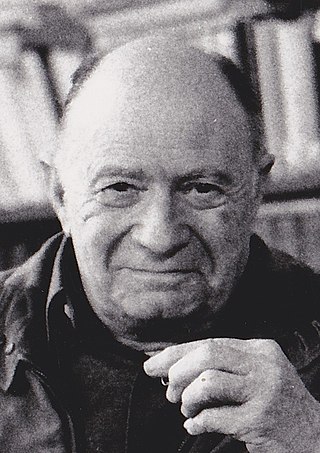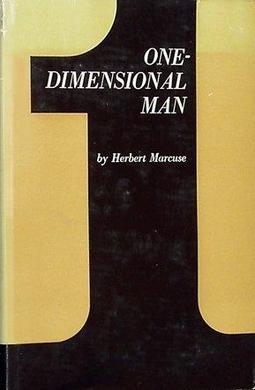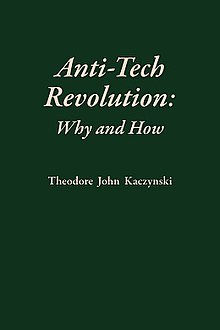Individualism is the moral stance, political philosophy, ideology and social outlook that emphasizes the intrinsic worth of the individual. Individualists promote realizing one's goals and desires, valuing independence and self-reliance, and advocating that the interests of the individual should gain precedence over the state or a social group, while opposing external interference upon one's own interests by society or institutions such as the government. Individualism makes the individual its focus, and so starts "with the fundamental premise that the human individual is of primary importance in the struggle for liberation".

Metaphysics is the branch of philosophy that studies the fundamental nature of reality. This includes the first principles of: being or existence, identity, change, space and time, cause and effect, necessity, actuality, and possibility.
A paradigm shift is a fundamental change in the basic concepts and experimental practices of a scientific discipline. It is a concept in the philosophy of science that was introduced and brought into the common lexicon by the American physicist and philosopher Thomas Kuhn. Even though Kuhn restricted the use of the term to the natural sciences, the concept of a paradigm shift has also been used in numerous non-scientific contexts to describe a profound change in a fundamental model or perception of events.
The technological singularity—or simply the singularity—is a hypothetical future point in time at which technological growth becomes uncontrollable and irreversible, resulting in unforeseeable changes to human civilization. According to the most popular version of the singularity hypothesis, I. J. Good's intelligence explosion model, an upgradable intelligent agent will eventually enter a "runaway reaction" of self-improvement cycles, each new and more intelligent generation appearing more and more rapidly, causing an "explosion" in intelligence and resulting in a powerful superintelligence that qualitatively far surpasses all human intelligence.
An ideology is a set of beliefs or philosophies attributed to a person or group of persons, especially those held for reasons that are not purely epistemic, in which "practical elements are as prominent as theoretical ones." Formerly applied primarily to economic, political, or religious theories and policies, in a tradition going back to Karl Marx and Friedrich Engels, more recent use treats the term as mainly condemnatory.
Anarcho-primitivism, also known as anti-civilization anarchism, is an anarchist critique of civilization that advocates a return to non-civilized ways of life through deindustrialization, abolition of the division of labor or specialization, abandonment of large-scale organization and all technology other than prehistoric technology and the dissolution of agriculture. Anarcho-primitivists critique the origins and alleged progress of the Industrial Revolution and industrial society. According to anarcho-primitivists, the shift from hunter-gatherer to agricultural subsistence during the Neolithic Revolution gave rise to coercion, social alienation, and social stratification.

Murray Bookchin was an American social theorist, author, orator, historian, and political philosopher. A pioneer in the environmental movement, Bookchin formulated and developed the theory of social ecology and urban planning within anarchist, libertarian socialist, and ecological thought. He was the author of two dozen books covering topics in politics, philosophy, history, urban affairs, and social ecology. Among the most important were Our Synthetic Environment (1962), Post-Scarcity Anarchism (1971), The Ecology of Freedom (1982), and Urbanization Without Cities (1987). In the late 1990s, he became disenchanted with what he saw as an increasingly apolitical "lifestylism" of the contemporary anarchist movement, stopped referring to himself as an anarchist, and founded his own libertarian socialist ideology called "communalism", which seeks to reconcile and expand Marxist, syndicalist, and anarchist thought.

The Frankfurt School is a school of social theory and critical philosophy associated with the Institute for Social Research, founded at Goethe University Frankfurt in 1923. Active in the Weimar Republic during the European interwar period, the Frankfurt School initially comprised intellectuals, academics, and political dissidents dissatisfied with the contemporary socio-economic systems of the 1930s. The Frankfurt theorists proposed that social theory was inadequate for explaining the turbulent political factionalism and reactionary politics occurring in 20th-century liberal capitalist societies, such as Nazism. Critical of both capitalism and of Marxism–Leninism as philosophically inflexible systems of social organization, the School's critical theory research indicated alternative paths to realizing the social development of a society and a nation.

Jacques Ellul was a French philosopher, sociologist, lay theologian, and professor. Noted as a Christian anarchist, Ellul was a longtime Professor of History and the Sociology of Institutions on the Faculty of Law and Economic Sciences at the University of Bordeaux. A prolific writer, he authored more than 60 books and more than 600 articles over his lifetime, many of which discussed propaganda, the impact of technology on society, and the interaction between religion and politics.

One-Dimensional Man: Studies in the Ideology of Advanced Industrial Society is a 1964 book by the philosopher and critical theorist Herbert Marcuse, in which the author offers a wide-ranging critique of both contemporary capitalism and the Communist society of the Soviet Union, documenting the parallel rise of new forms of social repression in both these societies, as well as the decline of revolutionary potential in the West. He argues that "advanced industrial society" created false needs, which integrated individuals into the existing system of production and consumption via mass media, advertising, industrial management, and contemporary modes of thought.
The term "technological evolution" captures explanations of technological change that draw on mechanisms from evolutionary biology. Evolutionary biology has one of its roots in the book “On the origin of species” by Charles Darwin. In the style of this catchphrase, technological evolution might describe the origin of new technologies.
Neo-Luddism or new Luddism is a philosophy opposing many forms of modern technology. The term Luddite is generally used as a pejorative applied to people showing technophobic leanings. The name is based on the historical legacy of the English Luddites, who were active between 1811 and 1817.
Technocracy is a form of oligarchy government in which the decision-makers are selected based on their expertise in a given area of responsibility, particularly with regard to scientific or technical knowledge. The experts in the technical details of specific issues, who presumably best understand both the problems at hand and how various technological redresses can improve the society at large. Technocracy follows largely in the tradition of other meritocracy theories and assumes full state control over political and economic issues. Technocracy bills itself as pragmatic, dispassionate and rational, free of the strife of political parties and factions as it pursues its optimal ends.

Difference and Repetition is a 1968 book by French philosopher Gilles Deleuze. Originally published in France, it was translated into English by Paul Patton in 1994.
Secular ethics is a branch of moral philosophy in which ethics is based solely on human faculties such as logic, empathy, reason or moral intuition, and not derived from belief in supernatural revelation or guidance—a source of ethics in many religions. Secular ethics refers to any ethical system that does not draw on the supernatural, and includes humanism, secularism and freethinking. A classical example of literature on secular ethics is the Kural text, authored by the ancient Indian philosopher Valluvar.

Theodore John Kaczynski, also known as the Unabomber, was an American mathematician and domestic terrorist. He was a mathematics prodigy, but abandoned his academic career in 1969 to pursue a primitive lifestyle.
Biotic ethics is a branch of ethics that values not only species and biospheres, but life itself. On this basis, biotic ethics defines a human purpose to secure and propagate life. These principles are related to bioethics, and to environmental ethics that seek to conserve existing species. However, biotic ethics value more generally organic gene/protein life itself, the structures and processes shared by all the biota. These processes result in self-propagation, an effective purpose that humans share with all life. Belonging to life then implies a human purpose to safeguard and propagate life. This purpose defines basic moral values: Acts that sustain life are good, and acts that destroy life are evil. Panbiotic ethics extends these principles to space, seeking to secure and expand life in the galaxy.

"Fourth Industrial Revolution", "4IR", or "Industry 4.0", is a buzzword neologism describing rapid technological advancement in the 21st century. The term was popularised in 2016 by Klaus Schwab, the World Economic Forum founder and executive chairman, who says that the changes show a significant shift in industrial capitalism.
Analytical Marxism is an academic school of Marxist theory which emerged in the late 1970s, largely prompted by G. A. Cohen's Karl Marx's Theory of History: A Defence (1978). In this book, Cohen drew on the Anglo–American tradition of analytic philosophy in an attempt to raise the standards of clarity and rigor within Marxist theory, which led to his distancing of Marxism from continental European philosophy. Analytical Marxism rejects much of the Hegelian and dialectical tradition associated with Marx's thought.

Industrial Society and Its Future, also known as the Unabomber Manifesto, is a 1995 anti-technology essay by Ted Kaczynski, the "Unabomber". The manifesto contends that the Industrial Revolution began a harmful process of natural destruction brought about by technology, while forcing humans to adapt to machinery, creating a sociopolitical order that suppresses human freedom and potential. The 35,000-word manifesto formed the ideological foundation of Kaczynski's 1978–1995 mail bomb campaign, designed to protect wilderness by hastening the collapse of industrial society.









